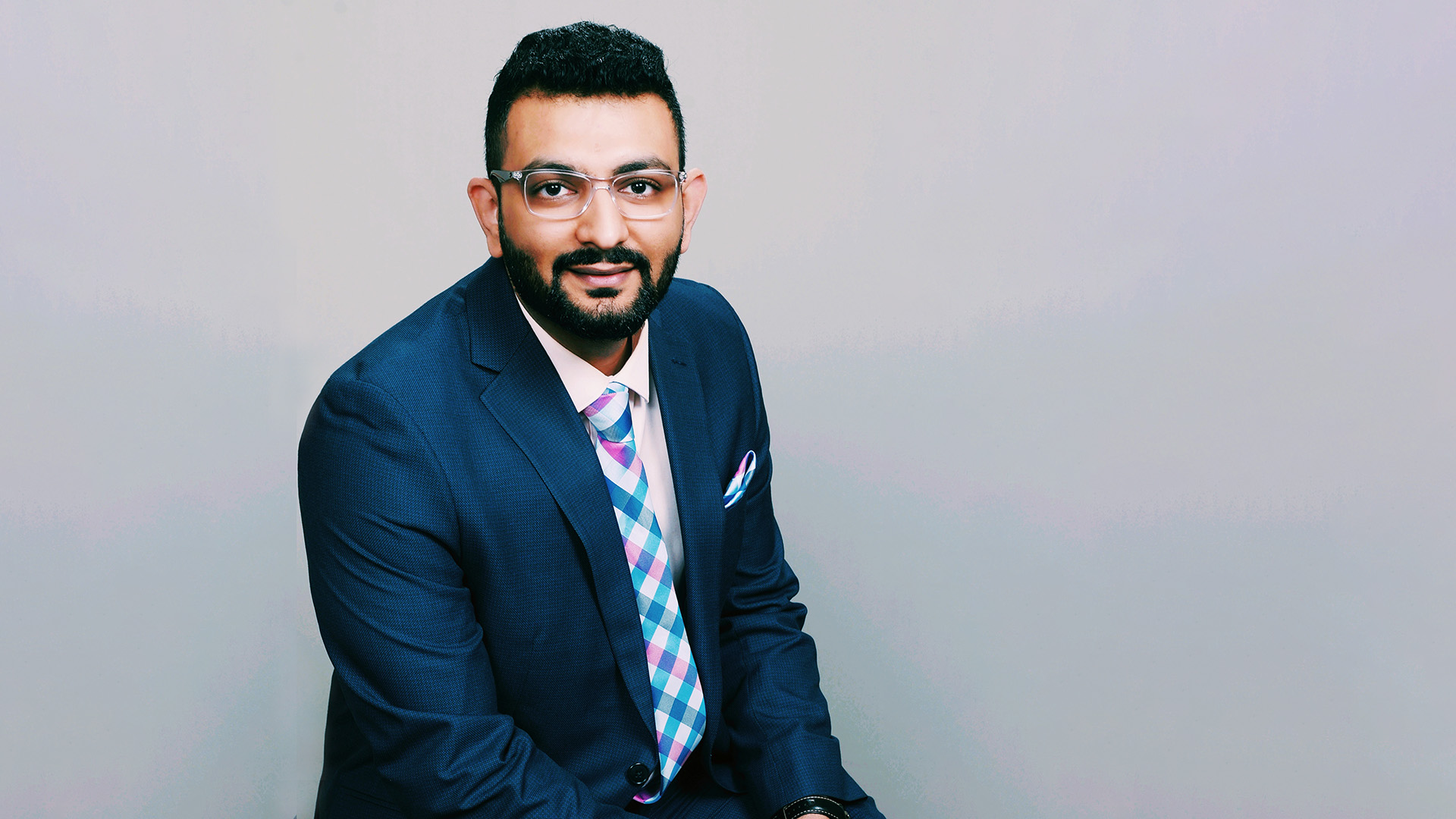- Future Students
- How to Apply
- Visit UHCL
- Admitted Students
- Tuition, Costs and Aid
- Degrees and Programs
- Contact Admissions
- Current Students
- Class Schedule
- Academic Calendar
- Advising
- Events
- Library
- Academic Resources and Support
- Student Services and Resources
- Alumni
- Lifetime Membership
- Alumni Events
- Update Your information
- Awards and Recognitions
- Give to UHCL
UHCL alum uses biotech skills to help create COVID vaccine at Moderna
March 11, 2022 | UHCL Staff

Hardik Jani always knew he wanted to work in public health and help make lifesaving medicines. With the outbreak of the COVID-19 pandemic in early 2020, time became of the essence to provide a vaccine against the virus. So, after he graduated from University of Houston-Clear Lake in 2012 with his Master of Science in Biotechnology, he began a career that ultimately led him to Moderna, one of the world's largest biotechnology companies, to use his skills to help respond to this global health emergency.
"I came to UH-Clear Lake directly from India, where I had already received a master's degree," Jani said. "I was interested in molecular biology, and I wanted to further increase my hands-on work experience. UHCL offered great lab-related courses and that's what I was looking for."
Jani said he went to work for a startup company called Base Pair Biotechnologies in Houston after graduation, where he gained experience in aptamer selection and Next Generation Sequencing. "I joined the Genomic and RNA Profiling Lab at Baylor College of Medicine in 2015, where I lead the NGS lab and was able to expand my expertise in Next Generation Sequencing and sample quality control," he said. "All this experience became very important in landing me the job at Moderna and contribute to the SARS-Cov-2 vaccine program."
In 2017, he began working at Moderna as a senior research associate. His job, at first, was to make aptamers to support the mRNA platform technologies.
"The main focus of aptamer discovery was to evaluate the ability of aptamers to be utilized for mRNA therapeutics," he said. "After two years, I moved to my current position on the Biological Science Team as a principal research associate to provide automation solutions for high priority manual bioanalytical assays performed across Moderna's research platform and therapeutic areas."
His contributions directly resulted in gaining critical data about the vaccines in preclinical research phase, which is vital for evaluating the drug performance and understanding the underlying science.
"When COVID happened, we found that we had a lot of studies that were taking too much time to complete," he said. "To cope with the numerous high-demand assays and studies, we had to expand into the automation and digitalization area. My job was to find automated solutions for improving assay turnaround time, directly accommodating the increase in demand, while continuing to achieve the highest data quality."
He added that every month there was a new virus strain and new mutations. "We tested as many as possible, requiring me to get results as soon as possible," he said.
Ultimately, Moderna was able to deliver a successful vaccine to the public. "I'm very happy I had something to do with that," he said. "During this time, I was also able to publish some research papers. I was an integral part of the studies that helped support finalizing the vaccine design."
He said he could foresee staying at Moderna for a long time to come, continuing to do the work that impacts public health. "Working at Moderna taught me the importance of human life," he said. "So many people are going through so much. There are so many diseases to cure. Being part of the process is important to me, especially after COVID."
Jani continues his work on several other vaccine programs, including for the cytomegalovirus, SARS-Cov-2 and associated variants, flu and herpes simplex virus.
He added that the preparation he got at UHCL, particularly the connections he made and the relationships he had with professors combined to equip him for the work he is now doing.
"I feel that whatever I have achieved in my life, it goes back to my education and all my mentors" he said. "I'm very thankful, and whatever I am, I owe it to the university. Even now, if I have questions about my life or career, I ask my former professors and they always answer. That's the kind of relationship I have with them."
For more information about UHCL's Biotechnology program, go online.






